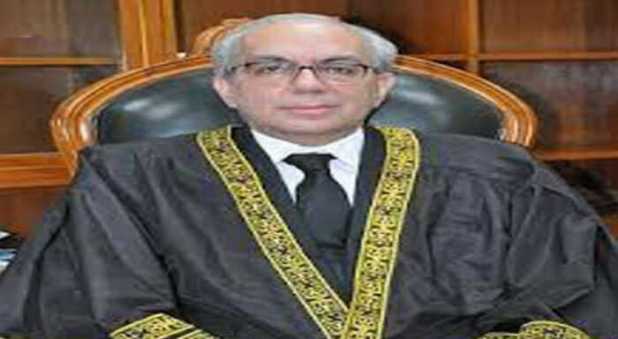
Islamabad, April 22 : Pakistan’s Supreme Court Justice M b Akhtar, who is part of a five-member bench hearing a presidential reference seeking the SC’s interpretation of Article 63-A of the Constitution, said on Friday that the only “honourable way out for dissident lawmakers is that they should resign and go home”, Dawn reported. Justice Akhtar was responding to PML-N counsel’s argument that disloyalty to the party was different from disloyalty to the state. Earlies, Justice Akhtar had likened defection in parliamentary democracy to the devastation wrought by cancer on a human body. The five-member bench of the SC hearing the presidential reference, which is related to disqualification of lawmakers over defection, is headed by Chief Justice of Pakistan Umar Ata Bandial and comprises Justice Akhtar, Justice Ijazul Ahsan, Justice Mazhar Alam Khan Miankhel and Justice Jamal Khan Mandokhail. When the hearing resumed on Friday, PTI counsel continued his arguments, saying the purpose of Article 63-A was to end horse-trading. Justice Ahsan questioned whether the counsel meant the votes would not be counted under Article 63-A, to which he replied that he was saying the same in light of judicial interpretation. The judge observed that counting of votes and dissent were two separate matters, asking whether a lawmaker’s vote would not be counted even if there were no instructions from the party head. The counsel replied that the party head would first issue instructions about voting and then the declaration regarding dissident members. Justice Mandokhail then repeated Justice Ahsan’s question about counting of votes in the absence of instructions from the party head, observing that if votes were not counted, it would mean no wrong had been committed since the concerned Article would come into force only after the vote has been cast. He observed that according to Article 63-A, a dissident lawmaker could cast his vote but he would subsequently lose his seat. Justice Miankhel observed that the party head could only give a declaration after the vote had been cast, adding that the party chief could inform the speaker even while polling was going on. Justice Mandokhail pointed out that after the vote had been cast, the party chief would first issue a show cause notice and seek the dissident member’s reply. Ahead of its ouster, the PTI government had filed a presidential reference for the interpretation of Article 63-A, asking the top court about the “legal status of the vote of party members when they are clearly involved in horse-trading and change their loyalties in exchange for money”. The presidential reference was filed under Article 186 which is related to the advisory jurisdiction of the SC. ACL1543

